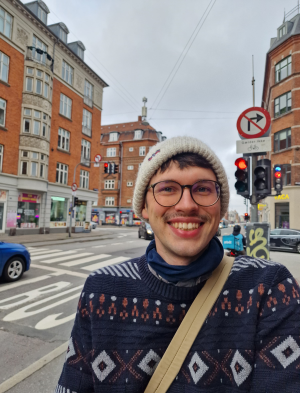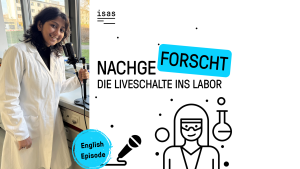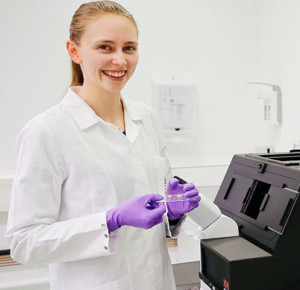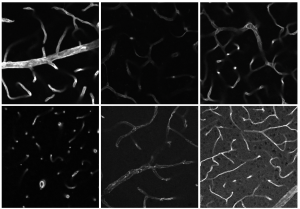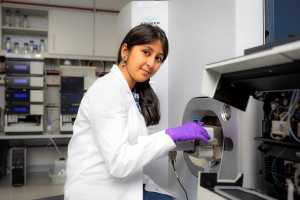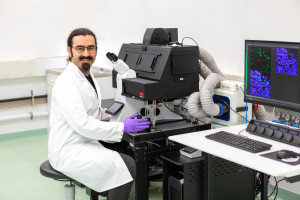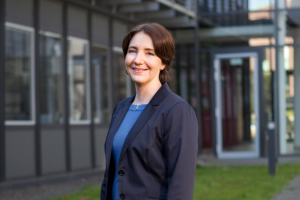Dortmund, 30th May 2025
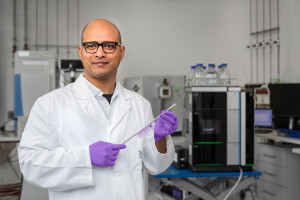
Dr Laxmikanth Kollipara is a staff scientist in the Lipidomics junior research group. He is holding an object that is particularly important for his work in the PIPMet project.
© ISAS / Hannes Woidich
“In this picture I am holding a chiral stationary phase column which is widely used to separate enantiomers, meaning molecules that are non-superimposable mirror images of each other. This commercially available column has been designed for specific chiral separation needs and plays a crucial role in our collaborative research project »PIPMet – Phosphoinositides in Metabolic Disease«. Together with our collaborators at the Leibniz-Forschungsinstitut für Molekulare Pharmakologie (FMP) and the German Institute for Human Nutrition Potsdam-Rehbrücke (Deutsches Institut für Ernährungsforschung Potsdam-Rehbrücke, DiFE), we aim to find out if the altered signaling of phosphoinositides (PIPs), a type of membrane lipids, underlies metabolic disease and related disorders like obesity and diabetes. However, since the seven regioisomers of PIPs differ in their phosphorylation pattern and fatty acyl chains, their separation and accurate profiling remains technically challenging with conventional liquid chromatography mass spectrometry (LC-MS) analysis.
To address this, we are currently implementing a chiral chromatography approach at ISAS using specialised columns like the CHIRALPAK® IB-U by Daicel and CHIRAL ART Cellulose-SB by YMC, paired with high-resolution mass spectrometry. The IB-U column is currently installed on our ultra-high-performance LC-system which is coupled to an Orbitrap Exploris mass spectrometer. By employing chemical derivatisation of PIP standards and optimizing LC conditions, we successfully enhanced the resolution of the regioisomers, building upon and improving previously published methods. With these promising results, we are confident in applying this method to diverse biological samples, including genetically modified cell lines, isolated organelles, and tissues from obese mouse models, and thereby resolving the unmet questions within our PIPMet project.”
Podcast recommendation: PIPMet - Interview with Prof Dr Volker Haucke
In the podcast ‘Wirkstoffradio’, host Bernd Rupp talks to Prof Dr Volker Haucke, one of the directors and head of the Department of Molecular Pharmacology and Cell Biology at the Leibniz-Forschungsinstitut für Molekulare Pharmakologie im Forschungsverbund Berlin e.V. (FMP) about PIPMet.
(German episode)
(Protocol: Cheyenne Peters)
